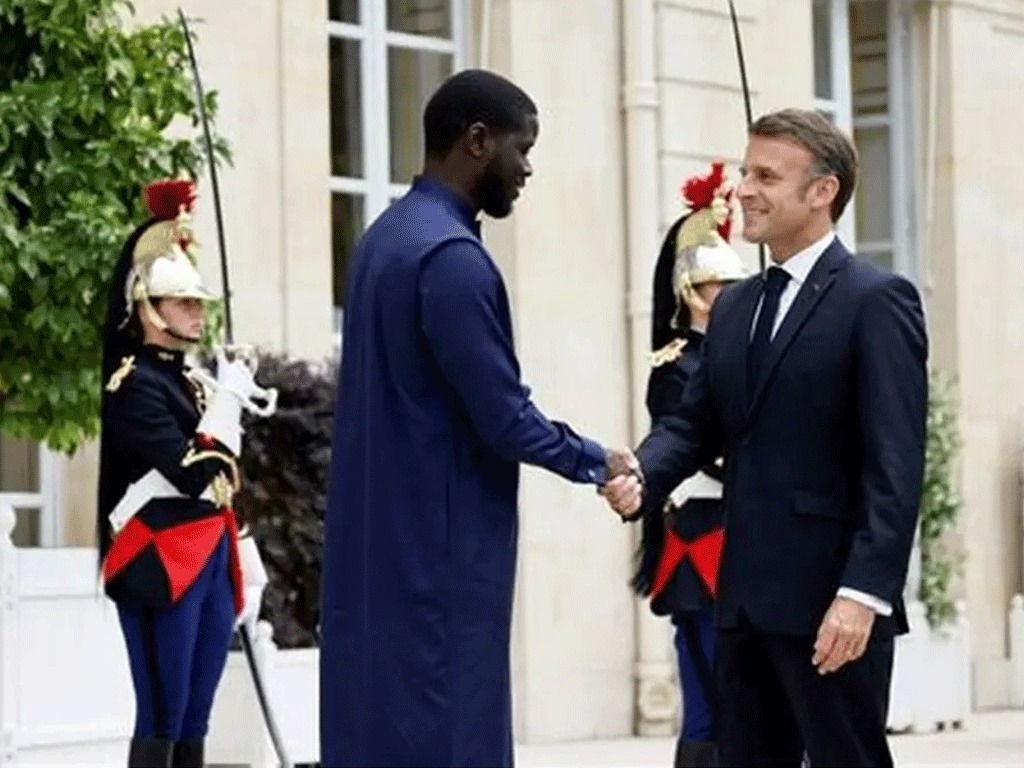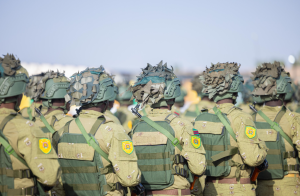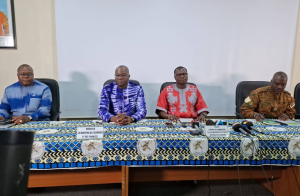Senegal: Bassirou Diomaye Faye abandons sovereignty for the arms of Paris

Bassirou Diomaye Faye, once hailed as the standard-bearer of true independence for Senegal, now appears to have turned his back on his commitments. In a short period, the president has opted to reconcile with foreign powers—particularly France—whose military bases and unequal agreements he once openly criticized. Under his leadership, Senegal seems to be slipping back into the web of unequal relationships that define Françafrique, the clientelist and asymmetric system that has long stifled Africa’s ambitions.
This political about-face has not gone unnoticed by the public. The man who once advocated a break from former colonial powers, condemned foreign military interventions, and dreamed of economic sovereignty is now seen as an ally of French interests. His timid statements and carefully calculated diplomatic moves reveal a clear intent to restore close ties with the Élysée. The contrast between his bold early rhetoric and his current policies is stark: where he once championed “independence” and “rupture,” he now seems satisfied with submissive compromises and opportunistic alliances.
In contrast, Prime Minister Ousmane Sonko appears to remain loyal to the path of rupture. While Diomaye Faye officially leads the Senegalese government, Sonko still embodies the push for radical transformation. His position is unambiguous: he stays true to the Pan-African vision he promoted during the 2024 campaign.
In his speeches, Sonko carries the torch of resistance against Françafrique, standing apart from Diomaye Faye’s apparent compromises. But his unyielding stance increasingly puts him at odds with a president who seems ready to trade national sovereignty for political security.
Bassirou Diomaye Faye’s U-turn goes beyond public discourse. His domestic governance and political alliances increasingly reveal a desire to maintain traditional ties with former colonial powers. For example, during the WAEMU summit in Lomé, the Senegalese Finance Minister openly criticized members of the Alliance of Sahel States (AES) for their efforts to break free from Western influence. By displaying disdain toward these African partners, Diomaye Faye signals his intent to align once again with French interests—at the expense of African unity and Pan-African solidarity.
This regression is all the more disappointing as it comes at a time when Africa, through movements in Mali, Burkina Faso, and Niger, was beginning to assert its sovereignty and autonomy from Western imperialism. While other Sahel nations are striving to break free from the grip of the former colonial power, Senegal appears to be returning to old habits.
However, all is not lost. Hope remains alive, and leaders like Ousmane Sonko continue to carry the flame of African emancipation. Pan-Africanism is far from a bygone dream. The road is difficult, but it is lined with the hope of a truly autonomous, prosperous, and united Africa.






